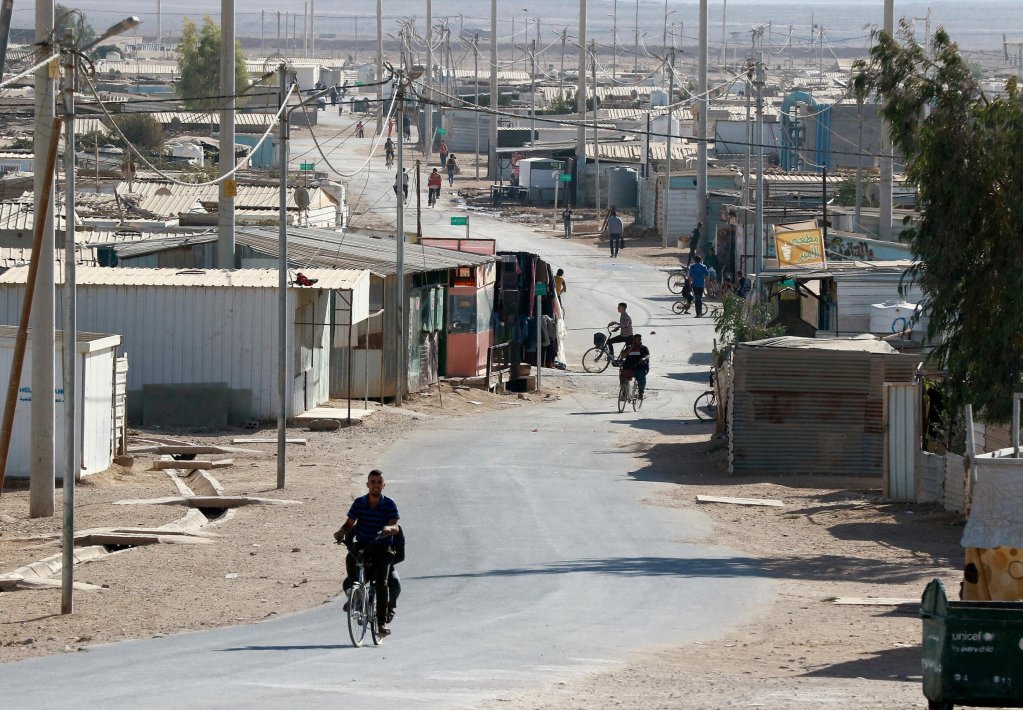Many Syrian refugees in Jordan face mounting barriers to returning home, including a lack of documentation, legal uncertainties, and economic hardship. A recent survey by the Norwegian Refugee Council shows that while some still hope to return, the majority either have no plans or face serious obstacles that make return unlikely for now.
Refugees hoping to return to Syria risk facing legal, economic, and administrative barriers, a new Norwegian Refugee Council (NRC) report has found.
Refugees told the humanitarian organization that economic constraints were among the main reasons that people decided to postpone their return to Syria.
"Debt, exacerbated by lack of jobs and cuts to food and shelter aid, has pushed more Syrians into poverty, limiting their ability to return," the NRC reported on Wednesday (September 24), citing the thousands of Syrian refugees living in Jordan who are unable to go back.
More than 152,000 Syrian refugees in Jordan have returned to Syria since December 8, 2024. Hopes for large-scale voluntary returns are fading, however, as refugees face mounting barriers, including surging living costs, reduced humanitarian aid, and restrictive documentation requirements in both countries.
Read Also'I want to be part of the change happening in my country' – Why Syrians are choosing to return
Only 21 percent of Syrian refugees in Jordan hope to return
The NRC survey conducted of 1,070 Syrian respondents in Jordan between May and June shows a shift in sentiment among Syrian refugees in Jordan. While 40 percent still express hope of returning to Syria someday, only 21 percent say they actively plan to do so. Meanwhile, 37 percent have no intention of returning at all.
Early optimism around return appears to be giving way to growing uncertainty and concern about conditions both in Syria and for those navigating the return process from Jordan.
"Many Syrians face arguably their most significant decision in over a decade: to return home or not," said Amy Schmidt, NRC’s country director in Jordan. "That thinking process must be made with all information available for them to make a free, informed decision. Yet many families tell us they don’t know enough, cannot afford travel costs, or fear being turned away at the border."
Ninety-three percent of employed refugees lack valid work permits, and under new regulations, they must pay retroactive fees, often amounting to thousands of Jordanian dinars, in order to legalize their employment, according to the organization.
"We face so many restrictions here. For example, my husband and son cannot work freely in any sector without expensive permits," the NRC cited a Syrian mother in Amman as saying. "If we stay in Jordan, we will just keep living in poverty, and no one wants that."

Read AlsoOver 2 million Syrians have returned home, UNHCR
Refugees face major bureaucratic hurdles
Syrian refugees in Jordan face growing bureaucratic obstacles to returning home, with missing or unverified civil documents emerging as a major barrier, particularly for women and children.
Refugees who attempt to cross the border without complete paperwork risk being denied entry.
Only 38 percent of Syrian households that claim property ownership inside Syria have documents to prove it, according to a survey by the NRC. Meanwhile, just 35 per cent of birth certificates issued in Jordan for Syrian children have been formally ratified by Jordanian authorities, leaving many children without a recognized legal identity.
These documentation gaps can have serious consequences, including statelessness, family separation, and exclusion from education, healthcare, and property rights. The legal uncertainty is also discouraging some families from attempting to return, despite worsening economic conditions in Jordan.
Without sustained international funding for humanitarian and legal support, many refugees risk remaining stuck between a life in limbo and the risks of an unprepared return, the NRC has warned.
